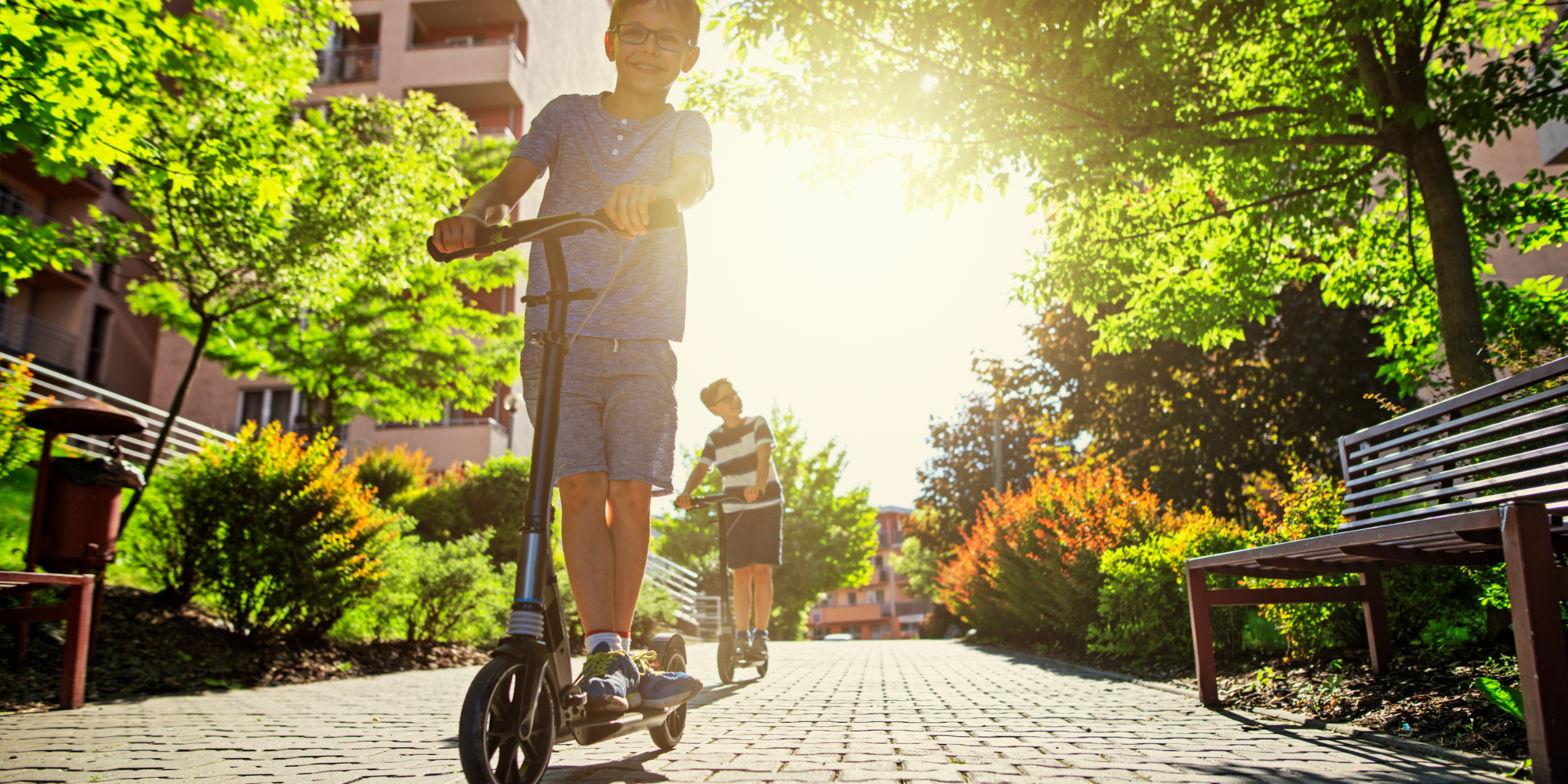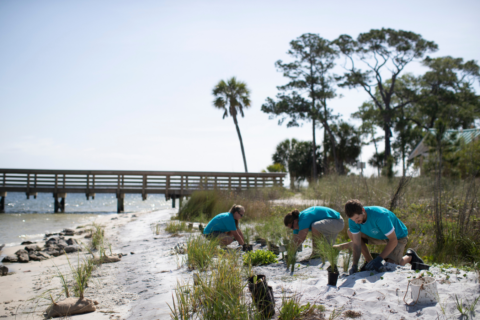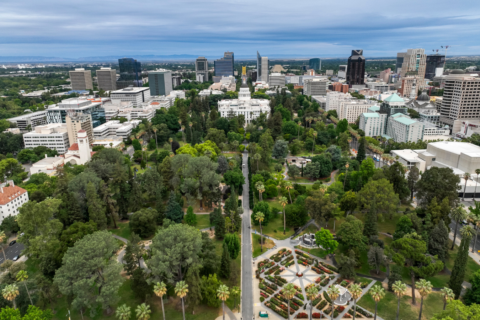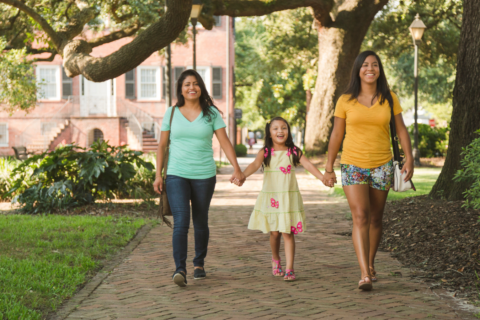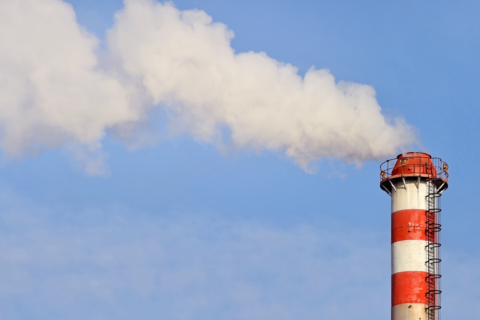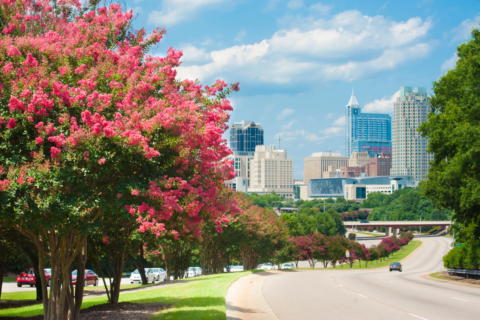NLC member cities join a technical assistance cohort focused on resiliency in the built environment
Across the United States and globally, the summer of 2023 has seen record-high temperatures. As extreme heat and flooding continue to intensify, cities, towns and villages are seeking solutions to mitigate social, economic and public health impacts.
Rethinking the built environment can improve the management of excessive heat and rainfall impacting all community members. Smart surfaces — such as reflective (cool) roofs and pavements, porous pavements, green roofs, solar photovoltaics, and trees — can cool cities by 5 degrees Fahrenheit, improve public health, address historical inequalities and save taxpayer dollars.
NLC has partnered with the Smart Surfaces Coalition (SSC) to launch the Resilient Infrastructure Technical Assistance Program funded by Waverly Street Foundation. The program supports 10 U.S. cities and metropolitan areas to reduce urban heat and flooding, accelerate equitable investments, improve public health, and create jobs through increased tourism and green infrastructure construction. The mayors of Atlanta, GA; Boston, MA; Columbia, SC; Dallas, TX; and New Orleans, LA have joined the program, recognizing that smart surfaces are key to mitigating and adapting to climate change.
In the next several years, SSC will provide support to participant cities including mapping of existing surfaces, engagement to support city staff and community members, the creation of a customized cost-benefit analysis tool to plan for smart surfaces as well as policy and funding guidance to support integration of these strategies. Following are examples of how three cities in the cohort are implementing solutions to address climate impacts using smart surfaces.
Boston, Massachusetts
Boston experiences impacts from rising sea levels, increasingly intense storms and extreme heat. The city is responding to climate challenges through equitable, creative solutions. Leading examples can be found in their Heat Resilience Solutions for Boston, a roadmap for navigating extreme heat for the greater city with a focus on neighborhoods where residents experience disproportionate impacts. By implementing heat resilience strategies, such as full-shade canopies and green roofs, Boston continues to advance economic opportunities, reduce carbon emissions, expand access to green spaces and improve the health for all Boston residents.
Columbia, South Carolina
Columbia’s Climate Protection Action Campaign prioritizes air quality, recycling and waste reduction, energy conservation and water conservation. Columbia’s climate goals are carried out not only by the city, but through the Climate Protection Action Committee (CPAC), a volunteer group that works to develop and advocate for effective strategies that protect the environment and improve the quality of life for all. In 2022, Columbia partnered with Richland County to participate in the CAPA Heat Watch program led by the National Oceanic and Atmospheric Administration (NOAA) and the National Integrated Heat Health Information System (NIHHIS). Findings showed hotspots occur in areas dominated by impervious surfaces, such as in urban parking lots and in residential areas lacking tree canopy. Areas with preserved tree canopy provide significant heat buffers between neighborhoods and adjacent highways and commercial centers.
Dallas, Texas
Equity and inclusion are at the heart of Dallas’s 2020 climate action plan, which works to reduce risk from long-term flooding, storm impacts, heatwaves and droughts. Efforts, such as their solar rooftop program, build climate resiliency across communities while fostering equitable engagement and education to increase participation. Dallas is kicking off their own Urban Heat Island mapping campaign with NOAA and NIHHIS. Dallas residents are volunteering to help support the city in their heat mapping efforts.
Stay tuned to learn more about cities participating in the and the benefits of smart surfaces in your own community.
